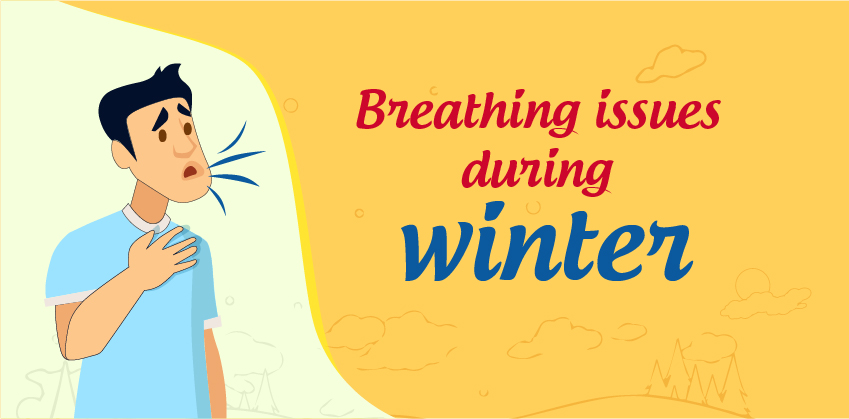Breathing issues during winter

Seasonal or weather change can have immense effect on one's health. Onset of winter, weather change can lead to breathing difficulty. It can invite a lot of breathing issues. Cold, chilly air is especially harmful for people with shortness of breath. It can be very harsh on people suffering from Asthma, Bronchitis or other lung issues. Extra precaution is crucial during winter as cold air impacts vital organs like the lungs.
Cold air can trigger your spasms in the lung which will create symptoms which are very similar to an asthma attack. You may have difficulty in breathing and have coughing bouts or wheezing. Immediately move indoors or someplace where it is warm. Always wear warm and comfortable clothes. The extra layers will trap the heat and keep you warm.
Why is air pollution worse in the morning?
Air pollution is worse in the morning because as the temperature drops during the night time hours, the atmosphere traps car emissions,CO2, and other pollutants in the house and down near the ground- and the effect is much worse if the spaces in the homes are poorly ventilated.
The reasons cold air causes respiratory issues is:
Winter air is cold and dry. The production of mucus increases during winters and the mucus produced during this timegets thicker and stickier causing blockages in your respiratory system. This increase chances of respiratory issues and infections.
Healthy people without any respiratory complications may also fall sick during winter. The cold, dry air causes irritation in the airways and lungs. Cold air narrows the upper airway and makes it difficult to breathe. The airways have fluid which dries up when we inhale dry air and this fluid takes time to get replenished.
Tips to protect yourself during the cold, especially if you have Asthma are:
- Take all yourprescribed medication on time.
- Always keep your inhaler handy.Use it at least 30 minutes before stepping outside in the cold.
- Protect your nose and mouth with a scarf. You can also protect your nose and mouth with air mask to avert the harmful effects of temperature changes on your airways and lungs.
- Try to avoid outdoor exercises as this can trigger your respiratory issues. During exercise breathing and heart rate increasesleading to air inhalation through the mouth, which onsets irritation and swelling.
- Try to make it a habit to inhale through your nose and definitely not from your mouth. Since, your nose has blood vessels that moisturises the air before it gets to your lungs.
- Keep yourself cosy, warm and covered in winters.
- Try to eat citrus fruits and healthy leafy vegetables to keep the various infections and cold away.
- Light indoor exercises are a great way to keep the body warm.
- Avoid smoking as it will trigger your breathing problem.
Do not take winter related complications lightly. Be extra cautious and consult your doctor in case of extreme discomfort.
 Call For Appointment
Call For Appointment